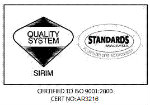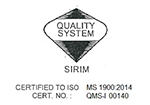Islam, Charity and Business
Islam encourages the act of charity to help others regardless whether the recipients are good or bad, Muslims or non-Muslims. While solah or obligatory prayers indicate Muslim spirituality in building direct relationship with God, charity reflects Muslim religiosity in the context of building relationship with God’s creations. Its importance is mentioned in the Quran, “Be steadfast in prayer and practice regular charity” (Quran 2:43). Charity is so important in the eyes of God to the extent that “by no means shall you attain righteousness, unless you give of that which you love” (Quran 3:92).
Ideally, the act of giving in Islam should not be considered merely a moral obligation to society, but it is actually a sincere endeavours to seek God’s mercy. Islam warns Muslims against false charity (Quran 2:264), which refers to the deceitful act of giving so as to be seen by others. Besides, charity will have value only if something valuable is given and what is given should be lawfully earned or acquired by the donor.
The Prophet has been described as a role model for almsgiving by bequeathing most of his estate to charitable causes. Thus, it became customary for wealthy Muslims in the early years of Islam to bequeath one-third of their estate to a waqf, an Islamic endowment.
Through charity, Muslims strengthened their social ties and empowered their economic well-being. In describing the market of the Prophet, Meir J. Kister (1914–2010) who made a major scholarly contribution through his meticulous study of spiritual, religious, economic and social aspects of pre- and early Islamic periods, illustrated that the early establishment of the Muslim market in Medina was without taxes. It implies that the Prophet intended to adopt the practice of Ukaz market, where taxes were not levied. However, later interpretation on the Muslim market in Medina revealed the idea of al-suq sadaqa (market of charity) concept.
The historical description of the economy and social state during the Caliphate rules of Umar ibn al-Khattab, one of the Prophet’s successors, is perhaps beyond the imagination to many of us. It was portrayed that the abundance of Bayt al-mal’s funds (house of wealth) during the time reached to a point where one could no longer find a person entitled to receive zakat (charity) or state compensation and the fund had to be brought back to Bayt al-mal.
Indeed, history has proven that the Islamic charitable model and instruments, if properly implemented, have the power to create wealth and well-being to the societies. The initiative of early Muslims in setting up legal charitable institutions has been recognised as a unique venture and complementary in nature.
In the Middle Ages, Islamic charities thrived as sources of decentralised and self-governing civic institutions, leaving behind a rich legacy of legal precedents for the rights and duties of benefactors and claimants. Scholars argued that no equivalent institution existed in Europe at that time and the introduction of trusts in Common Law may be considered an application of the Islamic waqf. In fact, the foundation of Oxford University’s oldest college in the 13th century may owe its intellectual capital to institutional heritage originating in the Jewish and Muslim communities of seventh century Medina.
To revive the spirit of charity in commerce, a framework of Islamic gift economy (IGE) has been recently introduced. IGE is basically defined as “the sharing, by mutual giving and receiving, of natural and cultural abundance to promote material and spiritual well-being”. The gift or charity as an economic foundation is considered significant in the religious, social and commercial exchange as it emphasises giving more than taking, and more about serving communal or public (maslaha) rather than individual interests.
The IGE framework is conceptually operationalised by a systematic and integrative mechanism embodied in the Islamic law. Some of the instruments within the IGE framework include obligatory charity (zakat), voluntary charity (sadaqah), endowment (waqf), gift giving (hibah), estate division (faraid), bequest (wasiyyah), benevolent loan (qard hassan), venture capital (mudharabah) and business partnership (musyarakah).
It is bewildering to ponder how charity, which glorified Muslim businesses and economics in the past, can be sustained. What has happened along the way and why? Present scholars, policy-makers and business leaders may continue formulating the best solution for charity or endowment success through product innovation, code of governance or fintech. By tracing back history however, it is worth mentioning that the success of charity should fundamentally reflect the Muslims’ spirituality to begin with. Bringing the mind into the experiences of the Caliph Umar for instance, is like moving into a utopia of social and economic strength. Its glory is well attributed to the spiritual leadership of the Caliph himself.
Hence, innovation is the key. But what is more important is to revive the business charity by channelling back the spiritual energy into the flow of Islamic gift economic system.




